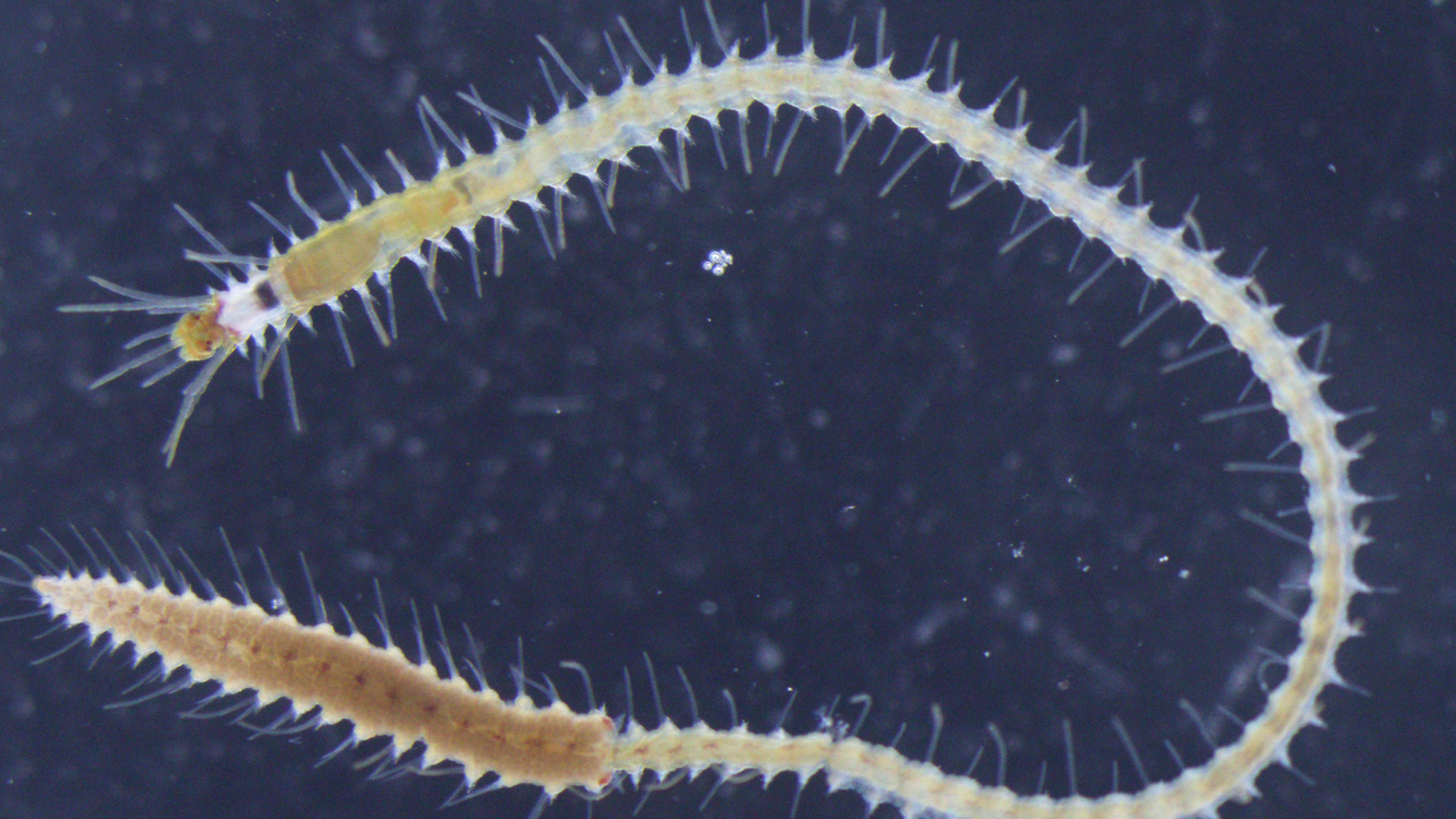When living your best life just isn’t enough, why not live two?
That’s the ethos of the Japanese green syllid worm, which scientists have found is able to detach its backend to embark on its own underwater adventures.
In a process called stolonisation (which sounds like a Christmas diet), the bottom end of these worms develop their own eyes, antennae and swimming bristles before breaking up with the top half and swimming away.
This bottom end, called the stolon, is full of eggs or sperms and heads off looking for a mate – while the rest of the worm stays behind and avoids the potentially dangerous journey.
For years, scientists have been baffled as to exactly how these stolons form before becoming independent.
Now a team at the University of Tokyo have discovered that they do so in sequence, starting with the maturation of gonads and then the formation of its own head.
Eyes, antennae, and other sensory organs follow, then come the swimming bristles, before the remarkable process rounds out with new nerves and a “brain”.
Read more science and tech news:
How chaos unfolded at OpenAI
Heart of Milky Way captured for first time
It lacks a unique digestive tract, and much of its body segments are repeated from the worm’s front.
But with everything it needs in place, these reproductive stolons can safely detach and live their own life.
Lead researcher Professor Toru Miura said it was a remarkable example of how animals adapt to survive.
“This shows how normal developmental processes are modified to fit the life history of animals with unique reproductive styles,” he added.
